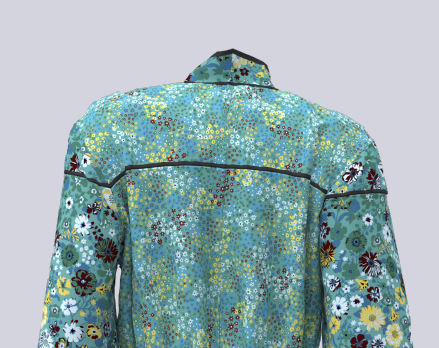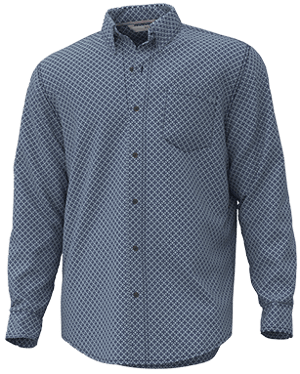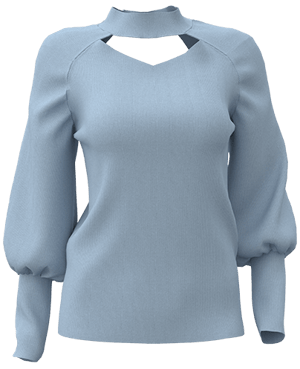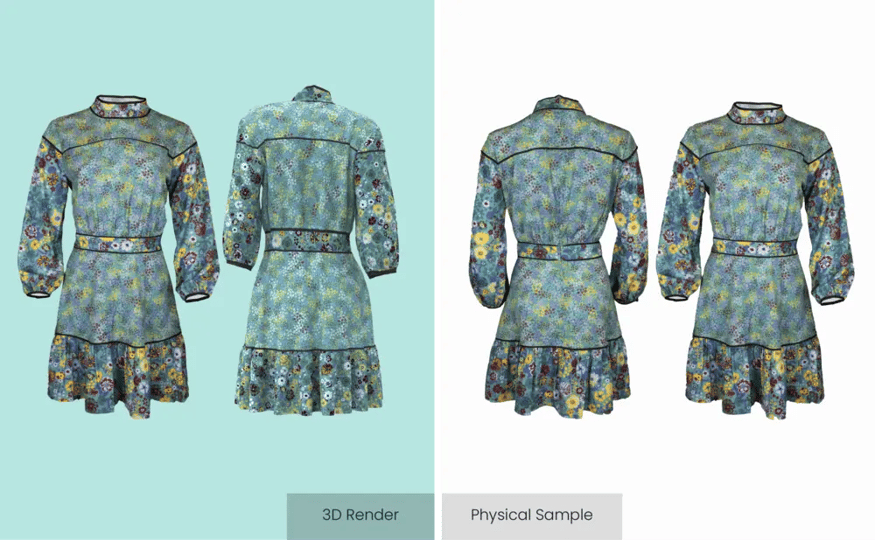From Samples to Simulation: How Top Form Transformed Product Development with Browzwear
Discover how Top Form reduced samples by 30% and cut development time by 25% using Browzwear’s 3D apparel design software. Learn how digital product...
November 12, 2021

![]()
Founded in 1993, Stars Design Group is a leading apparel designer and manufacturer, supporting coveted lifestyle apparel brands, retailers, and private labels through the delivery of high-quality, cost-effective, and ethically responsible products. With quality, value, and transparency at the core, Stars Design Group is committed to innovation and environmental sustainability, ensuring that its clients partner with the most forward-thinking companies in the industry. By utilizing 3D technology and leveraging an extensive range of digital fabrics, trims, and components, the company provides its customers with advanced visual performance and pricing objectives.
 The Need for 3D
The Need for 3DAs early adopters of 3D, Stars Design Group recognized the importance of technology as a means to build a powerful production and sourcing side of the apparel value chain. Coming from a background in design and retail, Bret Schnitker, CEO of Stars Design Group, noticed that the apparel industry lacked an efficient technique for larger-scale production, resulting in prolonged lead times and a significant amount of hit and miss in terms of getting the styles right. Thus, with the establishment of Stars Design Group, he looked to provide apparel organizations with the ability to visualize what the end product would look like in an adjustable way, at a pre-production stage. To begin, the design and product development teams began to create virtually real 2D designs to present collections to customers.
After receiving positive feedback, the teams regrouped to discuss the limitations of 2D, and how its initial success could be taken a step further to allow customers to interact with the garments. In a collaborative effort, the different teams begin to explore the 3D space, researching different types of fashion design software, and examining their capabilities. For Stars Design Group, the 3D program needed to be approachable to all designers, both with and without pattern-making experience, and that’s where Browzwear came into the picture. Throughout the trial period with Browzwear’s 3D fashion design software, VStitcher, first-time users who hadn’t touched upon pattern making in the past were able to import and manipulate patterns with ease, to create a great indication of what the garment looks like.
 Creating New Digital Processes
Creating New Digital ProcessesFirst and foremost, the design and product development teams began to utilize Browzwear’s 3D to present collections to clients and conduct much of the back and forth approval processes digitally, making informed decisions at a much faster pace. “As customers began to embrace the new technology, they could immediately reap the benefits of 3D. Not only were they able to visualize a digital garment that was an exact replica of the physical piece, but they were also able to offload some of the tedious tasks involved in the cumbersome fit process,” says Bret. In fact, one of the main ways in which Stars Design Group was able to get their clients on board with 3D, was simply by showing the 3D garment design and physical garment side by side and letting the results speak for themselves.
By building entire collections in 3D, customers could interact with the garments on turntables, visualize each garment’s detailing and fabrications. and ultimately make decisions over images that looked as real as human photography. “With Browzwear, we were soon able to resolve any pattern issues by simply importing the client’s pattern into VStitcher, dressing it on a 3D avatar, analyzing the fit and tension of the pattern pieces virtually in a variety of different poses and positions, and readjusting it accordingly” , says Bret. “Whereas fit validation and pattern iterations may have taken months prior to 3D, it can now be conducted and completed in a matter of days . In other words, 3D enables you to shorten the decision-making process” he adds.
Leveraging digital fabrics also enables the company to reverse engineer the fabrics utilized for collections to build a pre-production price point. That way, the customers can build backward in order to make informed decisions early on in the process, regarding which fabrics should be used and why. “ With 3D, we’re designing collections in future mode, assessing the cost, quality, and environmental implications at a pre-production level,” says Bret.
Since implementing 3D back in 2010, it continues to impact the company and its customers in many different ways. “There’s certainly a cultural shift that the industry has to go through in terms of embracing the accuracy of what we can see in the digital apparel space, which is now being addressed on a wider scope,” says Bret. “In light of the pandemic, we have witnessed an even more radical shift in people changing their way of thought because they must. Shipping costs and logistics are in shambles, and lead times are through the roof, and with 3D, months of the design processes are saved,” he adds . “ We are seeing 3D being adopted at a more aggressive rate across the industry in order for apparel professionals to stay ahead of the game.”

With more and more apparel organizations rapidly moving into the world of 3D and putting their trust into Stars Design Group to lead the way through the approval process and fit dialogue, the company hopes to double down its efforts in fit accuracy and precision. By addressing different size ranges for different body shapes and sizes the team hopes to build a unified fit for the masses that can be applied across brands. “Today we live in an online world, meaning that quality and fit are of the utmost importance both for the customer and the apparel brand, to reduce product returns and boost customer satisfaction,” says Bret.

The ability to build entire collections in 3D

Customers can visualize each garment’s detailing and fabrications

Any pattern issue can be resolved in VStitcher

Fit validation can be conducted in a matter of days

The design team can pre-assess costs, quality, and production waste

A shorter and more efficient decision-making process
“Whereas fit validation and pattern iterations may have taken months prior to 3D, it can now be conducted and completed in a matter of days . In other words, 3D enables you to shorten the decision-making process.”

Discover how Top Form reduced samples by 30% and cut development time by 25% using Browzwear’s 3D apparel design software. Learn how digital product...
MAS Holdings: Pioneering Apparel Innovation with Browzwear's Suite of Solutions
Discover how Perry Ellis uses Browzwear’s 3D technology to enhance design efficiency, cut costs, and innovate with a smart-to-market approach.